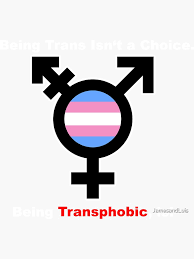Hormones play a crucial role in our overall health and well-being, especially for men. Testosterone and estrogen, often thought of as strictly male and female hormones, respectively, are present in both genders and significantly influence various physiological functions. Understanding the normal levels of these hormones can help men maintain their health and address potential issues before they become serious. In this article, we’ll explore what constitutes normal testosterone and estrogen levels in men, their importance, and how to keep them balanced.
What Are Normal Testosterone Levels for Men?
Normal testosterone levels in men typically range from about 300 to 1,000 nanograms per deciliter (ng/dL). However, it’s essential to understand that these values can differ based on various factors, including age, time of day, and individual health conditions. Testosterone levels usually peak during adolescence and early adulthood, gradually declining with age. For example, men in their 30s might start to see a decrease, which can accelerate in their 40s and beyond.Transgender Woman Dilation
It’s also worth noting that testosterone levels can fluctuate throughout the day, often following a diurnal rhythm. Levels are generally highest in the morning, so healthcare professionals usually recommend testing at this time. Understanding these normal ranges can help men better recognize when their levels may be lower than average, potentially indicating a health issue.
Understanding Normal Estrogen Levels in Males
While estrogen is often associated with women, men also produce this hormone, albeit in much lower amounts. Normal estradiol (the primary form of estrogen) levels for men typically range from about 10 to 40 picograms per milliliter (pg/mL). This may seem low, but estrogen is crucial for various bodily functions in men, including bone health, libido, and mood regulation.
Like testosterone, estrogen levels can also be affected by age and certain health conditions. For instance, testosterone levels tend to decline as men age, which can inadvertently lead to higher relative levels of estrogen if not managed properly. Maintaining a balance between these hormones is key to ensuring optimal health and preventing potential issues down the line.
Why Testosterone and Estrogen Matter for Men’s Health
Testosterone is often referred to as the “male hormone” because of its significant role in developing male physical characteristics, such as muscle mass and facial hair. However, its functions extend beyond that; it also influences mood, energy levels, and sexual function. Adequate testosterone levels are crucial for overall vitality, and low levels can lead to fatigue, depression, and decreased libido.
Estrogen, although present in lower quantities in men, is equally important. It helps regulate various bodily functions, including cholesterol levels and bone density. An imbalance—whether too much or too little—can lead to health issues like osteoporosis, mood swings, and even changes in fat distribution. Understanding the roles of these hormones can empower men to take charge of their health and make informed decisions about their well-being.
How to Check Your Hormone Levels: A Quick Guide
Checking your hormone levels typically involves a simple blood test. Your healthcare provider can order a testosterone panel, which usually measures total testosterone, free testosterone, and sometimes bioavailable testosterone. For estrogen levels, specific tests can measure estradiol. It’s recommended to discuss any symptoms you might be experiencing with your doctor, who can then determine the most appropriate tests for you.
Timing is important when testing hormone levels. As previously mentioned, testosterone levels fluctuate throughout the day, so getting tested in the morning can provide the most accurate reading. For estrogen, there isn’t as much variability, but it’s still good to follow your healthcare provider’s advice on timing. Once you have your results, your doctor can help you understand what they mean and whether any further action is necessary.
Signs of Low Testosterone: What to Look Out For
Low testosterone can manifest in various ways, and recognizing these signs is key to addressing potential issues. Common symptoms include fatigue, reduced muscle mass, increased body fat, and decreased libido. Men may also experience mood changes, such as irritability or depression, as well as difficulty concentrating. If you notice any of these symptoms, it’s essential to consult with a healthcare provider.
In addition to these more noticeable signs, low testosterone can also lead to more serious health concerns over time. For instance, it has been associated with increased risks of cardiovascular disease and osteoporosis. Therefore, if you suspect your testosterone levels are low, seeking medical advice can help mitigate these risks and improve your overall quality of life.
High Estrogen in Men: Causes and Symptoms Explained
While low testosterone is a common concern, high estrogen levels in men can also lead to various health problems. Causes of elevated estrogen might include obesity, certain medications, liver disease, and hormonal imbalances. Symptoms can range from gynecomastia (enlarged breast tissue) to mood swings and decreased libido. Men might also notice increased body fat, particularly around the abdomen.
It’s crucial to remember that a rise in estrogen can sometimes be a result of low testosterone. When testosterone levels drop, the body may produce more estrogen to compensate. Understanding the interplay between these hormones can help men recognize signs of imbalance and take action to address the issue.
Tips to Maintain Balanced Testosterone and Estrogen Levels
Maintaining hormone balance is essential for overall health, and several lifestyle changes can assist in achieving this. Regular exercise, particularly strength training, has been shown to boost testosterone levels. Additionally, a balanced diet rich in healthy fats, lean protein, and plenty of fruits and vegetables can support hormone production. It’s also helpful to manage weight, as excess body fat can lead to higher estrogen levels.
Sleep is another critical factor. Poor sleep quality can negatively impact testosterone levels, so aiming for 7 to 9 hours of restful sleep each night is vital. Reducing stress through relaxation techniques, such as yoga or mindfulness, can also support hormonal balance. Ultimately, small, consistent changes in lifestyle can make a significant difference in maintaining healthy testosterone and estrogen levels.
When to Consult a Doctor About Your Hormones
If you’re experiencing symptoms of hormonal imbalance, it’s essential not to ignore them. Consulting a healthcare provider can provide valuable insights and potential treatment options. Whether it’s fatigue, mood changes, or physical changes like weight gain or loss of muscle mass, your doctor can assess your symptoms and recommend testing to determine if your hormone levels are out of balance.
Even if you’re not currently experiencing symptoms, regular check-ups can help monitor your hormone levels as you age. Early detection of any imbalances can lead to more effective management strategies. Remember, taking a proactive approach to your health is always a good idea!
Understanding normal testosterone and estrogen levels is key to maintaining your health as a man. By recognizing the signs of hormonal imbalance, knowing when to seek help, and adopting healthy lifestyle changes, you can ensure that both of these essential hormones remain balanced. Remember, your health is your wealth, so stay informed, stay active, and keep those hormones in check!


